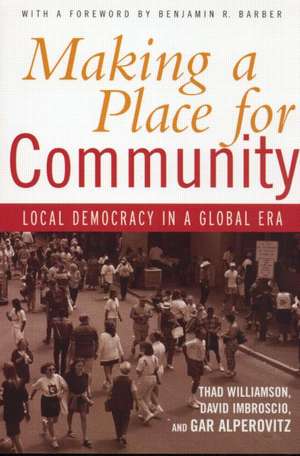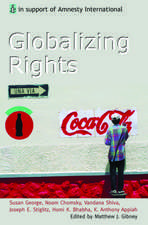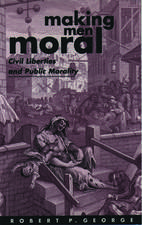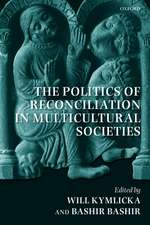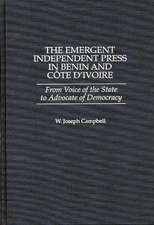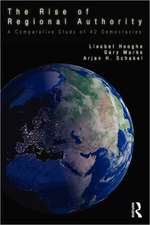Making a Place for Community: Local Democracy in a Global Era
Autor Thad Williamson, David Imbroscio, Gar Alperovitzen Limba Engleză Paperback – 18 sep 2003
| Toate formatele și edițiile | Preț | Express |
|---|---|---|
| Paperback (1) | 404.11 lei 6-8 săpt. | |
| Taylor & Francis – 18 sep 2003 | 404.11 lei 6-8 săpt. | |
| Hardback (1) | 410.91 lei 6-8 săpt. | |
| Taylor & Francis – 6 sep 2002 | 410.91 lei 6-8 săpt. |
Preț: 404.11 lei
Nou
Puncte Express: 606
Preț estimativ în valută:
77.32€ • 80.73$ • 63.100£
77.32€ • 80.73$ • 63.100£
Carte tipărită la comandă
Livrare economică 05-19 aprilie
Preluare comenzi: 021 569.72.76
Specificații
ISBN-13: 9780415947411
ISBN-10: 0415947413
Pagini: 430
Dimensiuni: 152 x 229 x 23 mm
Greutate: 0.8 kg
Ediția:1
Editura: Taylor & Francis
Colecția Routledge
Locul publicării:Oxford, United Kingdom
ISBN-10: 0415947413
Pagini: 430
Dimensiuni: 152 x 229 x 23 mm
Greutate: 0.8 kg
Ediția:1
Editura: Taylor & Francis
Colecția Routledge
Locul publicării:Oxford, United Kingdom
Notă biografică
Gar Alperovitz, the Lionel R. Bauman Professor of Political Economy at the University of Maryland, has a leading voice in the communitarian movement for 30 years. His book, The Decision to Use the Atomic Bomb is the definitive history of the subject. He serves on the editorial board of Tikkun, and his articles appear frequently in The Nation, The Boston Review and The Washington Post. Thad Williamson is a researcher at Harvard University. He has written for The Nation, In These Times and Monthly Review. David L. Imbroscio is Associate Professor of Political Science at the University of Louisville.
Recenzii
"Comprehensive, balanced, and well documented, Making a Place for Community is a monumental collection of valuable research, experience, data and policy guidance on building strong local economies. Essential reading for every city, county and state official and engaged citizen and an invaluable reference source to which they will return for years to come.lo--David C. Korten, author of When Corporations Rule the World."
"The restoration of American democracy will begin--if it begins at all--in the lives of communities, not Washington DC or state capitals. Making a Place for Community provides an illuminating and rigorous tour of the existing landscape of community life and the ongoing efforts to foster development. It is a terrific catalogue of promising ideas.lo--William Greider, author of One World, Ready or Not: The Manic Logic of Global Capitalism."
"A breathtaking synthesis of the latest research on the essential role of strong community economies in revitalizing American democracy. It contains hundreds of exciting examples of successful policies, businesses, and movements that demonstrate that localization IS a viable alternative to perils of globalization. Every local politicians, policymakers, and activist should read, understand, and use this book." -- Michael H. Shuman, author of Going Local: Creating Self-Reliant Communities in a Global Age
"Students interested in the intersection of social science and social policy must read this important book. The authors¹ vision of the adverse impact of globalization, internal capital mobility, and suburban sprawl on American communities is compelling. This vision provides the basis for a new and comprehensive policy agenda to achieve community economic stability and for understanding why such stability is so important for the future of American democracy. Making a Place for Community is replete with theoretical insights, strong substantive arguments, and thoughtful policy analyses." -- William Julius Wilson, author of When Work Disappears : The World of the New Urban Poor
"An indispensable primer for the new century." -- From the foreword by Benjamin Barber, author of Jihad v. McWorld
"The restoration of American democracy will begin--if it begins at all--in the lives of communities, not Washington DC or state capitals. Making a Place for Community provides an illuminating and rigorous tour of the existing landscape of community life and the ongoing efforts to foster development. It is a terrific catalogue of promising ideas.lo--William Greider, author of One World, Ready or Not: The Manic Logic of Global Capitalism."
"A breathtaking synthesis of the latest research on the essential role of strong community economies in revitalizing American democracy. It contains hundreds of exciting examples of successful policies, businesses, and movements that demonstrate that localization IS a viable alternative to perils of globalization. Every local politicians, policymakers, and activist should read, understand, and use this book." -- Michael H. Shuman, author of Going Local: Creating Self-Reliant Communities in a Global Age
"Students interested in the intersection of social science and social policy must read this important book. The authors¹ vision of the adverse impact of globalization, internal capital mobility, and suburban sprawl on American communities is compelling. This vision provides the basis for a new and comprehensive policy agenda to achieve community economic stability and for understanding why such stability is so important for the future of American democracy. Making a Place for Community is replete with theoretical insights, strong substantive arguments, and thoughtful policy analyses." -- William Julius Wilson, author of When Work Disappears : The World of the New Urban Poor
"An indispensable primer for the new century." -- From the foreword by Benjamin Barber, author of Jihad v. McWorld
Cuprins
Forward: Benjamin BarberPreface: Toward the Reconstruction of American Community and DemocracyPart I.The triple Threat to Community and DemocracyIntroduction: The Case for Community Economic Stability: Economics and Political-Economics1.Globalization and Free trade2.The Chase for Jobs3.The Challenge of SprawlPart II.Place-Based Policy AlternativesNote to Part II4.Federal Job Stabilizing Policies5. Conventional Strategies6.State and Municipal Enterprise 7.Local MunicipalitiesPart III.Place-Based Economic StructuresNote to Part III8.Supporting Employee Ownership9.Community Development Corporations and Community Development Financial Institutions10. Alternative Ownership Models:Non-Profits and Co-Ops11. Community Land trusts and Community AgriculturePart IV. The Global ContextNote to Part IV.12.Restructuring Global Economic Institutions13.Alternative Approaches to TradeConclusion: Political-Economic Policies for the Next Stage of Democratic Development
